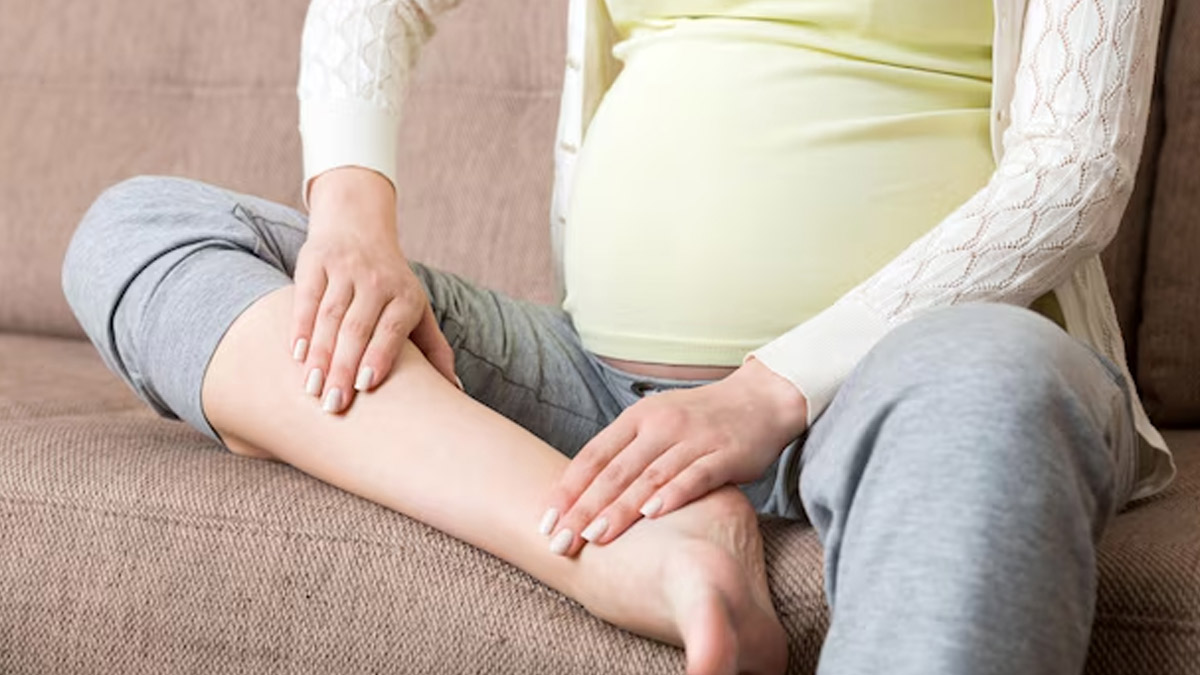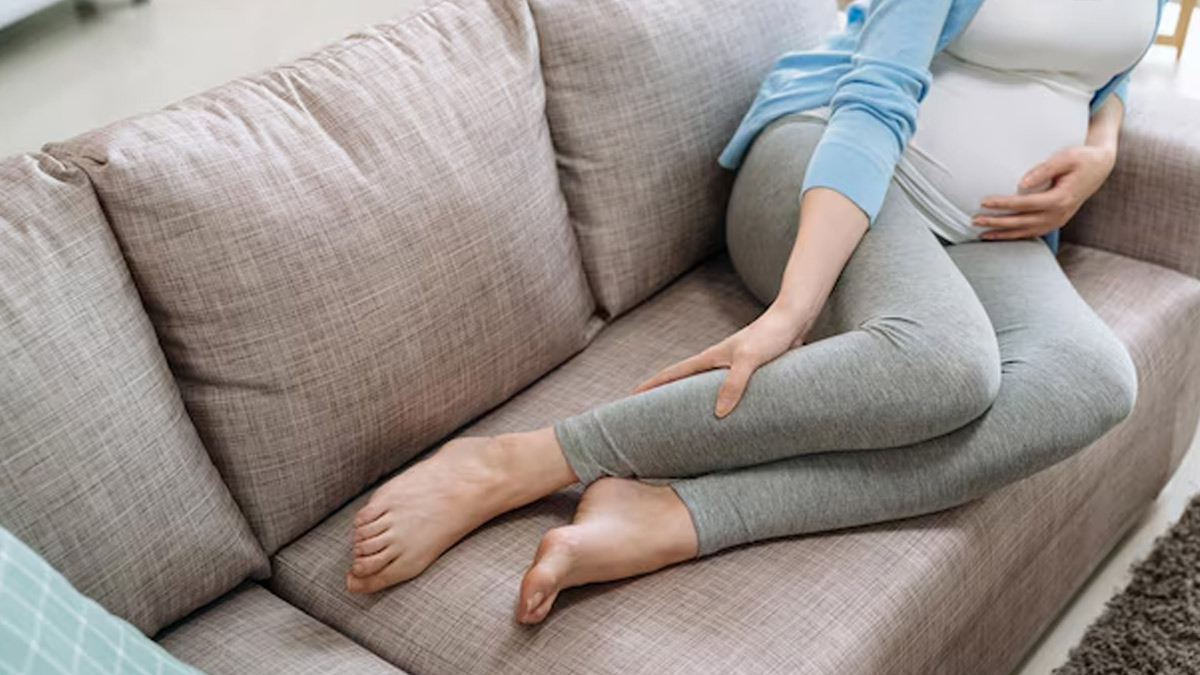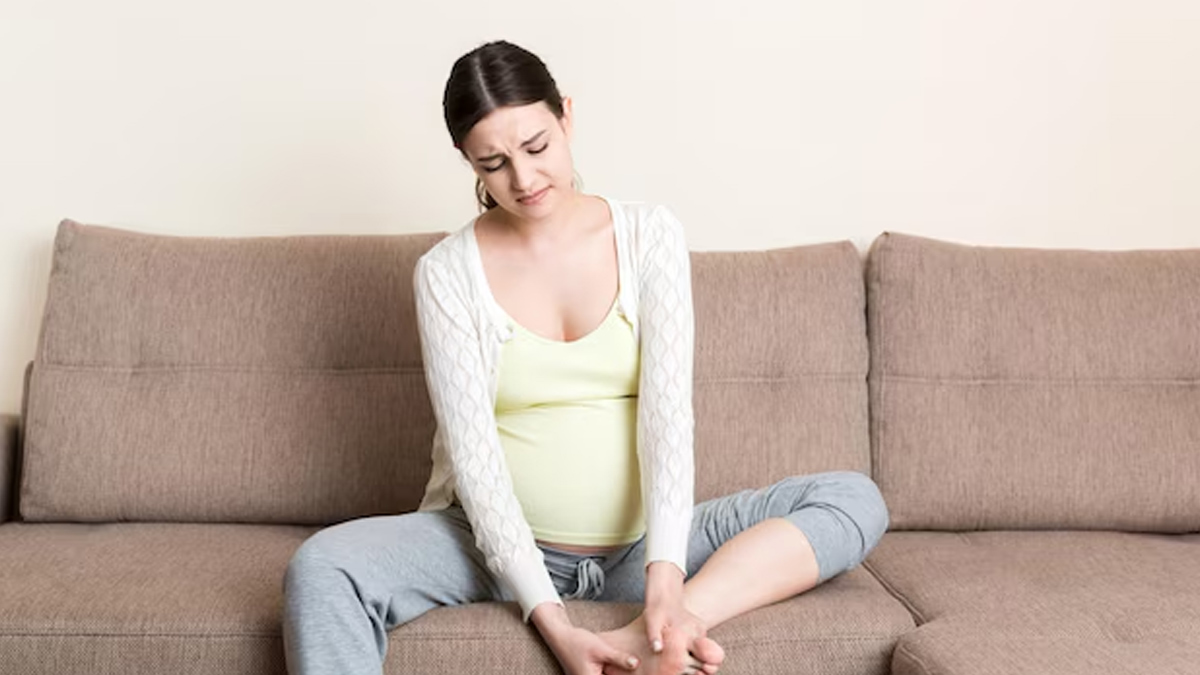
Pregnancy comes with several physical changes and challenges. While some women complain of experiencing morning sickness, fatigue, back pain, and mood swings, in severe cases, some women develop complications like preeclampsia and gestational diabetes. Among the more uncomfortable but common symptoms is swelling in the feet, which often occurs as the pregnancy progresses.
Table of Content:-
If you’re wondering why it happens and what you can do to manage the issue, here’s all you need to know.
What Causes Swollen Feet During Pregnancy?

According to Dr Gayathri Dinesh Kamath, Additional Director Obstetrics and Gynaecology, Fortis Hospital, Bannerghatta Road, foot swelling can occur due to various reasons. However, during pregnancy, increased blood volume and fluid retention lead to swollen feet. This is because excess fluid in the bloodstream puts pressure on blood vessels, causing them to leak fluid into surrounding tissues.
Also Read: What Pregnant Women Should and Shouldn't Eat in Monsoon, Expert Shares
"The growing uterus also compresses veins, impairing blood flow and causing fluid accumulation in the feet and ankles. And hormonal changes further contribute to water retention," the doctor adds.
A 2021 study published in Case Reports in Obstetrics and Gynecology suggests that approximately 70% of women present with swelling, or clinical oedema, at some point during pregnancy. One of the common causes of lower extremity oedema during pregnancy is an increase in hydrostatic pressure, which refers to the pressure exerted by a fluid at rest due to the force of gravity.
Preeclampsia Risk In Pregnant Women

Preeclampsia is a pregnancy complication characterised by high blood pressure and signs of damage to another organ system, often including swelling (or oedema) as a symptom.
While some swelling is normal during pregnancy, preeclampsia-related swelling tends to be more sudden and severe and often involves the face and hands.
However, Dr Kamath suggests that foot swelling alone isn't a definitive early sign of preeclampsia, but it is essential to monitor blood pressure and report any concerning symptoms to a healthcare provider.
How To Reduce Swelling In The Feet During Pregnancy?
“Expecting mothers can reduce swelling by elevating their feet, staying hydrated, and avoiding salty foods,” advises Dr Kamath, adding that regular exercise, comfortable shoes, and compression stockings also help.
According to the doctor, swelling is considered dangerous if accompanied by high blood pressure, severe headaches, vision changes, or abdominal pain. Sudden or severe swelling, especially in the face and hands, also warrants medical attention.
Dietary Changes To Follow

During pregnancy, a healthy, balanced diet is key. Dr Kamath recommends eating a balanced diet with a normal amount of salt. This includes avoiding extra salt in foods like buttermilk, pickles, and deep-fried items. Equally important is staying well-hydrated, as adequate water intake helps flush out toxins and maintain fluid balance.
Although it may seem counterintuitive, drinking around two and a half litres of water a day can actually help reduce swelling.
Also Read: Is It Safe to Eat Ice Cream While Pregnant? Experts Weigh In on Iodine and Maternal Nutrition
Conclusion
Swollen feet during pregnancy can be uncomfortable, but in most cases, it’s a normal part of the body adjusting to the changes of growing a baby. That said, it’s important not to ignore your symptoms, especially if the swelling feels sudden or severe.
Simple steps like staying active, eating right, keeping your feet elevated, and drinking enough water can go a long way in easing the discomfort. And if something feels off, don’t hesitate to check in with your doctor.
Also watch this video
How we keep this article up to date:
We work with experts and keep a close eye on the latest in health and wellness. Whenever there is a new research or helpful information, we update our articles with accurate and useful advice.
Current Version